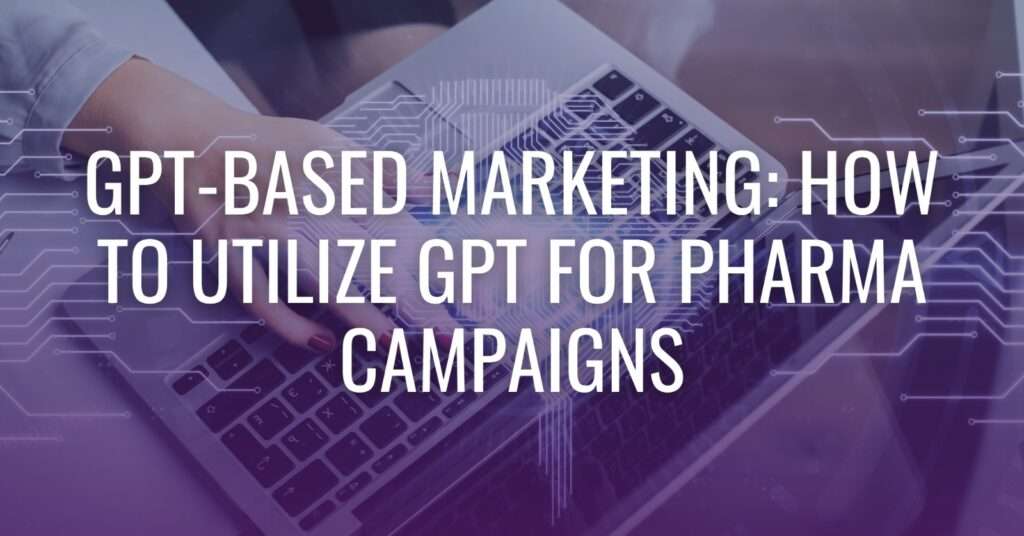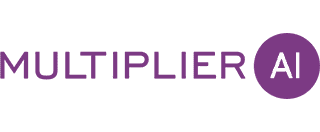GPT-Based Marketing: How to Utilize GPT for Pharma Campaigns

In the dynamic realm of marketing, maintaining a competitive edge is paramount. For pharmaceutical enterprises, this entails adopting inventive approaches that captivate their desired demographic. Introducing GPT-based marketing, a groundbreaking advancement poised to transform the sector.
With the ability to generate high-quality and relevant content, GPT-based marketing ensures that every campaign captures the attention of potential customers. Leveraging the power of artificial intelligence, this cutting-edge approach takes marketing to new heights by understanding the needs and preferences of the target audience.
By incorporating GPT-based marketing into their strategy, pharma companies can deliver personalized and targeted messages, ultimately driving better results. From engaging blog posts to captivating social media content, this transformative technology is set to elevate campaigns and capture the attention of the ever-discerning consumer.
In this article, we delve into the world of GPT-based marketing in the pharma industry, exploring its benefits, challenges, and how companies can effectively implement this innovative strategy. Join us as we explore the edge that GPT-based marketing brings to pharma campaigns.
What is the Impact of GPT-Based Marketing on Campaign Effectiveness?
GPT-based marketing holds immense power in driving campaign effectiveness for pharma companies. With its ability to generate high-quality and relevant content, this technology ensures that every campaign resonates with the target audience. By understanding the needs and preferences of potential customers, GPT-based marketing enables companies to deliver personalized messages that have a higher chance of conversion.
Moreover, GPT-based marketing allows pharma companies to create engaging blog posts, articles, and social media content that captivates their audience. Whether it’s sharing informative articles about the latest medical breakthroughs or providing valuable health tips, GPT-based marketing ensures that the content is not only informative but also optimized for search engines. This means that pharma companies can attract more organic traffic to their websites, further increasing their chances of reaching their target audience.
In addition, GPT-based marketing enables companies to automate the content creation process, saving time and resources. Instead of relying on human writers to come up with content ideas and create engaging pieces, companies can leverage the power of artificial intelligence to generate content at scale. This not only improves efficiency but also allows companies to focus on other important aspects of their marketing strategy.
Overall, GPT-based marketing empowers pharma companies to create compelling, personalized, and SEO-optimized content that drives campaign effectiveness. By harnessing the power of artificial intelligence, companies can elevate their campaigns and stay ahead of the competition.
Top 4 GPT-Based Marketing Trends in the Pharma Industry
In recent years, GPT-based marketing has gained significant traction in the pharma industry. As companies seek innovative ways to engage their target audience, they are turning to this technology to drive their marketing efforts. Here are some key trends in GPT-based marketing within the pharma industry:
- Personalized Messaging: GPT-based marketing allows pharma companies to create personalized messages that resonate with their target audience. By understanding the preferences and needs of potential customers, companies can deliver tailored content that addresses their specific concerns. This level of personalization not only increases the chances of conversion but also enhances customer satisfaction.
- Chatbots and Virtual Assistants: GPT-based marketing has paved the way for the use of chatbots and virtual assistants in the pharma industry. These AI-powered tools can interact with customers, answer their queries, and provide personalized recommendations. By integrating chatbots and virtual assistants into their marketing strategy, pharma companies can enhance customer experience and build stronger relationships with their audience.
- Data Analytics and Insights: GPT-based marketing enables pharma companies to gather valuable data and insights about their target audience. By analyzing customer behavior, preferences, and engagement patterns, companies can adapt their marketing strategies to better meet the needs of their audience. This data-driven approach allows companies to make informed decisions and optimize their campaigns for better results.
- Augmented Reality and Virtual Reality: GPT-based marketing opens up new opportunities for pharma companies to incorporate augmented reality (AR) and virtual reality (VR) into their campaigns. By leveraging these immersive technologies, companies can provide virtual experiences, product demonstrations, and educational content that engage and educate their audience. This not only enhances the overall customer experience but also sets companies apart from their competitors.
These trends highlight the potential of GPT-based marketing in the pharma industry. As companies continue to embrace this technology, we can expect to see further advancements and innovative applications in the years to come.
Implementing GPT-Based Marketing Strategies in Pharma Campaigns
Implementing GPT-based marketing strategies in pharma campaigns requires a strategic approach. Here are some key steps to effectively implement this innovative strategy:
- Define Your Target Audience: Before implementing GPT-based marketing, it’s essential to define your target audience. Understanding their demographics, preferences, and needs will help you create personalized messaging that resonates with them.
- Collect and Analyze Data: GPT-based marketing relies on data to deliver personalized content. Collect and analyze data about your target audience to gain insights into their behaviors, preferences, and engagement patterns. This will help you create content that addresses their specific concerns.
- Create Engaging and Relevant Content: Leverage the power of artificial intelligence to generate high-quality and relevant content. Whether it’s blog posts, social media content, or videos, ensure that the content is optimized for search engines and tailored to each channel.
- Test and Optimize: Continuously test and optimize your campaigns to improve their effectiveness. Analyze the performance of different messaging, channels, and content formats to identify what works best for your target audience.
- Integrate AI-Powered Tools: Consider integrating AI-powered tools like chatbots and virtual assistants into your marketing strategy. These tools can engage with your audience, answer their queries, and provide personalized recommendations.
By following these steps, pharma companies can effectively implement GPT-based marketing strategies and elevate their campaigns to new heights.
Top 5 Best Practices for Successful GPT-Based Marketing Campaigns in Pharma
To ensure successful GPT-based marketing campaigns in the pharma industry, it’s essential to follow best practices. Here are some key practices to consider:
- Invest in Quality Data: GPT-based marketing relies on data to deliver personalized content. Invest in quality data collection and analysis to gain valuable insights into your target audience. Ensure that the data collected is accurate, relevant, and compliant with privacy regulations.
- Maintain Ethical Standards: Ensure that the content generated by AI aligns with ethical standards and does not mislead or manipulate the audience. Regularly review and audit the content to ensure compliance with ethical guidelines.
- Combine AI with Human Expertise: While GPT-based marketing is powerful, it’s important to combine it with human expertise. Human writers and marketers can provide the creative input and strategic thinking necessary to create compelling campaigns.
- Continuously Optimize: Test and optimize your campaigns to improve their effectiveness. Analyze the performance of different messaging, channels, and content formats to identify what works best for your target audience. Continuously iterate and refine your campaigns based on data-driven insights.
- Stay Compliant: Ensure compliance with regulatory requirements and data privacy regulations. Stay updated with the latest laws and regulations and adapt your marketing strategies accordingly.
By following these best practices, pharma companies can maximize the potential of GPT-based marketing and achieve better results in their campaigns.
Future Prospects and Advancements in GPT-Based Marketing for Pharma
The future of GPT-based marketing in the pharma industry looks promising. As technology continues to advance, we can expect to see further innovations and advancements in this field. Here are some prospects and advancements to watch out for:
- Improved Natural Language Processing: As natural language processing (NLP) technology improves, GPT-based marketing will become even more sophisticated in understanding and generating human-like content. This will allow companies to create highly personalized and engaging campaigns that resonate with their audience.
- Enhanced Personalization: With advancements in AI and data analytics, GPT-based marketing will enable even deeper personalization. Companies will be able to create campaigns that are tailored to individual preferences, allowing for highly targeted messaging and increased conversion rates.
- Integration with Voice Assistants: As voice assistants like Amazon Alexa and Google Assistant become more prevalent, GPT-based marketing will integrate with these platforms to deliver personalized voice-based content. pharma companies can leverage voice assistants to provide health tips, medication reminders, and personalized recommendations to their audience.
- Virtual Reality Experiences: GPT-based marketing will enable pharma companies to create immersive virtual reality experiences that educate and engage their audience. From virtual tours of medical facilities to interactive educational simulations, virtual reality will play a significant role in future GPT-based marketing campaigns.
These future prospects and advancements highlight the exciting possibilities of GPT-based marketing in the pharma industry. By embracing these advancements, companies can stay ahead of the curve and elevate their marketing efforts.
Conclusion
GPT-based marketing is a transformative technology that has the power to revolutionize the pharma industry. By leveraging the capabilities of artificial intelligence, pharma companies can create personalized, targeted, and engaging campaigns that drive better results.
From generating high-quality and relevant content to delivering personalized messaging, GPT-based marketing empowers companies to capture the attention of their audience and stay ahead of the competition. By implementing best practices, addressing challenges, and staying compliant, pharma companies can effectively navigate this innovative strategy and elevate their campaigns to new heights.
As marketing evolves, the adoption of GPT-based strategies becomes increasingly vital for pharmaceutical firms to engage their audience effectively and achieve superior outcomes. By embracing this innovative approach and harnessing the capabilities of artificial intelligence, organizations can enhance their campaigns and attract the attention of today’s discerning consumers.
